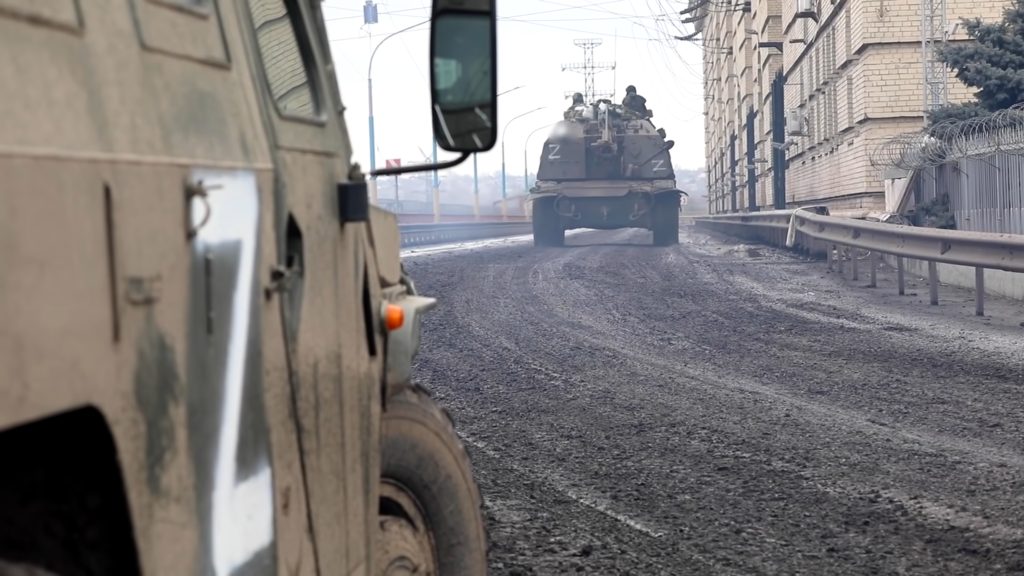Creeping escalation would lead to extended European disunity, particularly if Donald Trump was in power in the US… The EU would no longer be a union of values but an intergovernmental confederation.
Katia Glod
Creeping escalation would lead to extended European disunity, particularly if Donald Trump was in power in the US: Western Europe versus Eastern Europe, and Northern countries versus Southern ones. The EU would no longer be a union of values but an intergovernmental confederation. It would manage to hold together due to its proven history of overcoming crises but would be less effective. The EU’s further enlargement would be problematic. It could stumble or may halt altogether, as member states would like to reduce the risks of war with Russia over Ukraine.
European security would be weakened. NATO would take the biggest hit, becoming de facto meaningless and disintegrated. New alliances would emerge, such as, for example, between the UK, Poland, and the Baltic states. Other actors outside of Europe may use such developments to opportunistically achieve their own goals by force: China could invade Taiwan, and the US’s attention would be diverted away from Ukraine and Europe. The Middle East’s conflicts would blow hot and cold.
Massive escalation
But Russia could also significantly escalate with the view to winning the war.
In this scenario, Russia would threaten a nuclear strike or a conventional attack on a NATO country. It may also perform a major hybrid operation with strategic effects, such as taking out the energy grid in Europe. Alternatively, Russia could use tactical nuclear weapons in Ukraine or attack a NATO country with conventional arms; the latter might be in response to NATO stepping up military assistance to Ukraine.
NATO would retaliate, potentially going into a full-fledged war with Russia, either kinetic or hybrid. Both NATO and Russia would suffer damage, and Russia would likely be defeated.
The colossal shock would probably unite the EU, but Western dominance and the role of European institutions would irrevocably decline. Multilateralism would have crumbled. Who is going to mediate? New ways of thinking about the international order could emerge, leading to a new global system which could benefit China. The latter might take over world leadership, offering a modest ‘Marshall Plan’ to the West. European security would collapse, nuclear weapons proliferate, and so would the arms race.
***
All three outlined scenarios are dark for the EU, the UK and wider Europe. Therefore, both policy-makers and experts alike increasingly think that the only way to avoid them is for the West to supply Ukraine with enough weapons and ammunition so that the Ukrainian forces can defeat Russia on the battleground. Only if Russia comes to acknowledge its defeat on the frontline will it be willing to negotiate a genuine peace settlement. If, on the contrary, Russia feels emboldened by successfully subjugating Ukraine, there is all reason to expect that it will try to grab more land, be it in Moldova or the Baltics.
All three outlined scenarios are dark for the EU, the UK and wider Europe. As the participants of the ELN-HSF scenario-building workshop concluded, European leaders should define the war’s purpose.
Katia Glod
As the participants of the ELN-HSF scenario-building workshop concluded, European leaders should define the war’s purpose. For Russia’s president Vladimir Putin, the war is no longer about Ukraine but about establishing a ‘new world order’ in opposition to that of the West. European leaders should seek an appropriate solution to the challenge posed by Russia’s leadership to the rules-based order.
The EU and the UK should also be better prepared for international competition and confrontation with Russia by adopting a more consistent approach to conflicts around the world. Russian criticism of Western double standards finds a ready audience in much of the world; in other regions, the war and Russia’s role are often perceived differently than in Europe.
Europeans should aim for the best (defeat of Russia) but prepare for other scenarios too. Even under scenarios where Ukraine cannot win a military victory, European integration of Ukraine reduces the risks and costs compared to other scenarios that produce a Ukraine that is both militarised and isolated.
The opinions articulated above represent the views of the author(s) and do not necessarily reflect the position of the European Leadership Network or any of its members. The ELN’s aim is to encourage debates that will help develop Europe’s capacity to address the pressing foreign, defence, and security policy challenges of our time.
Image: Wikimedia commons, Kursant504, Mil.ru, Ministry of Defence of the Russian Federation
Source link : https://europeanleadershipnetwork.org/commentary/europes-dark-future-how-might-a-protracted-conflict-between-russia-and-ukraine-affect-europe/
Author :
Publish date : 2024-05-03 07:00:00
Copyright for syndicated content belongs to the linked Source.
